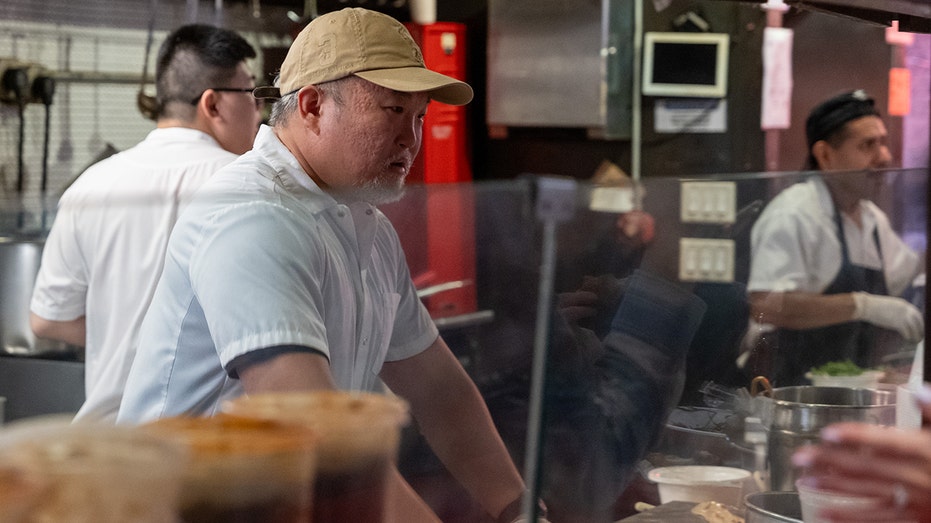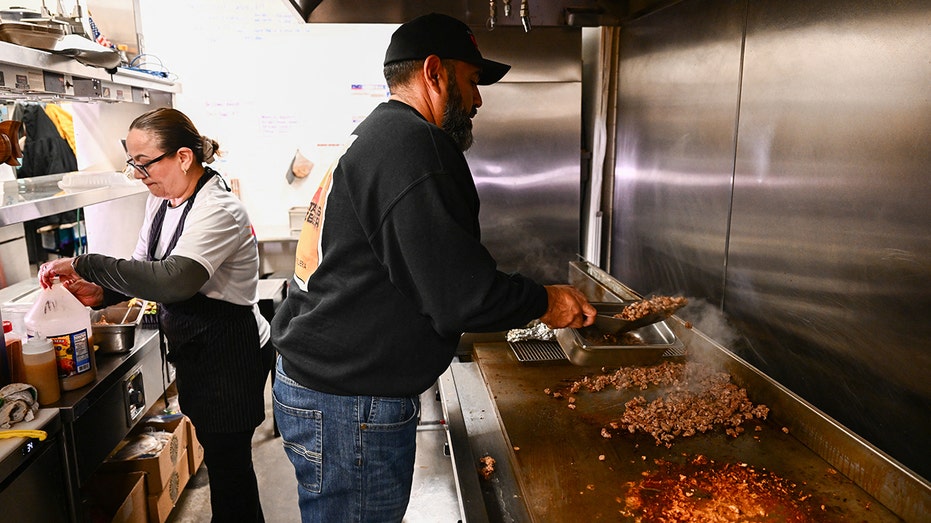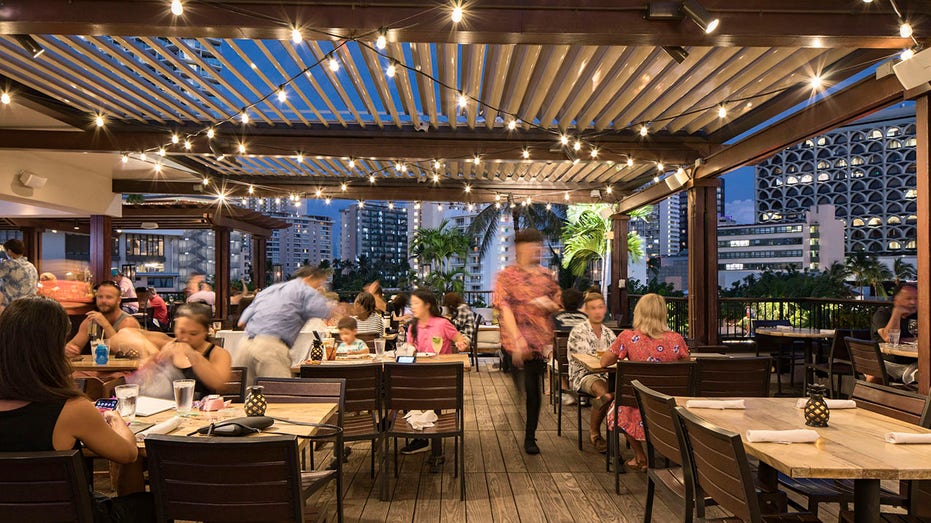Restaurants sales expected to top $1T, but theft, high costs and cautious consumers pose challenges
1 in 3 consumers is keeping a 'tight rein on spending'
Mom-and-pop restaurants in DC are ‘really hurting’ from crime: Fritz Brogan
Washington D.C. restaurant owner Fritz Brogan reveals the impact that the U.S. crime crisis has had on the community and local businesses during an appearance on ‘Varney & Co.’
Restaurants have proved to be resilient in the face of elevated costs, shallow labor pools, uneven customer traffic levels and crime, as sales are projected to exceed $1.1 trillion in 2024.
It marks a new milestone for the industry, and it is a far cry from the $678 billion sales reached in 2020, when indoor dining was essentially brought to a standstill. It is even a boost from pre-pandemic times, when the industry notched $864 billion, according to the National Restaurant Association's 2024 State of the Restaurant Industry report.
On top of that, U.S. restaurants, which employ one in 10 U.S. workers, are also expected to add 200,000 positions to reach 15.7 million jobs by year's end, according to the report.
DENNY'S SHUTTERS ONLY LOCATION IN OAKLAND AFTER MORE THAN 54 YEARS DUE TO HIGH CRIME
Yet, operators are still less bullish on the year given that the problems in the industry are persisting.
According to the report, costs are still running high in many categories, and crime prevention is eating into profits.
"Profit margins are especially thin in the restaurant, running three to five percent on average, and added security costs cut into margins significantly," CEO Michelle Korsmo told FOX Business.

People work at a restaurant at Chelsea Market in Manhattan on Feb. 2, 2024 in New York City. (Photo by Spencer Platt/Getty Images / Getty Images)
Korsmo noted that a restaurant operator reported spending approximately $80,000 per year just on security to keep employees and customers safe from brazen crime.
In many areas, operators have reported seeing fewer diners due to safety concerns, "often resulting in closure of once profitable restaurants," Korsmo added.
Just last month, Denny's closed a location in Oakland, California, after 54 years due to high crime in the city. It came after In-N-Out announced it would be closing its Oakland location in March due to rampant violent crime and theft, marking the first time in the chain's history that it has been forced to close one of its restaurants.
OAKLAND, CALIFORNIA'S ONLY IN-N-OUT RESTAURANT CLOSING DUE TO CRIME
Labor and food costs also "remain the most significant challenges," with nearly every restaurant operator saying these two issues are prevalent, according to Korsmo.
Meanwhile, operators are also battling rising credit card swipe fees, which are one of the highest operating expenses, having more than doubled over the past decade. In 2022, they cost businesses more than $160 billion, she said.

Antonio Munoz, owner of the 911 Taco Bar restaurant, prepares carne asada and chicken in Las Vegas on Feb. 1, 2024. ( PATRICK T. FALLON/AFP via Getty Images / Getty Images)
Coupled with that are concerns over consumer spending. About one in three consumers is keeping a "tight rein on spending" due to concerns about their finances, according to the report.
Only 20% of adults are confident in their personal finances and do not plan on holding back. Meanwhile, about 48% are "taking the wait-and-see approach, holding back somewhat on their spending," the report said.
"The expectation of falling interest rates and moderating inflation will offer households some relief," the report read. "But disinflation is not deflation, and prices will continue to run higher across many of their budget categories, potentially exposing cracks in their household balance sheet, including rising debt and delinquency levels."
GET FOX BUSINESS ON THE GO BY CLICKING HERE
Regardless, Korsmo believes, "Americans will continue to go out to eat with friends and family – regardless of plans to save more."
However, that does not diminish the fact that 90% of operators say their customers are more value-conscious than before.

Tommy Bahama rooftop restaurant in Waikiki, Hawaii. (Tommy Bahama)
As a result, operators are facing pressure to offer a "well-presented value proposition" to reel in customers. This includes loyalty programs or discounts for dining on off-peak days or hours.
They are appeasing the seven in 10 adults who say they are often looking for a daily special or discount, whether they are dining in or taking out.





















